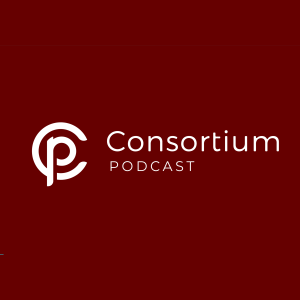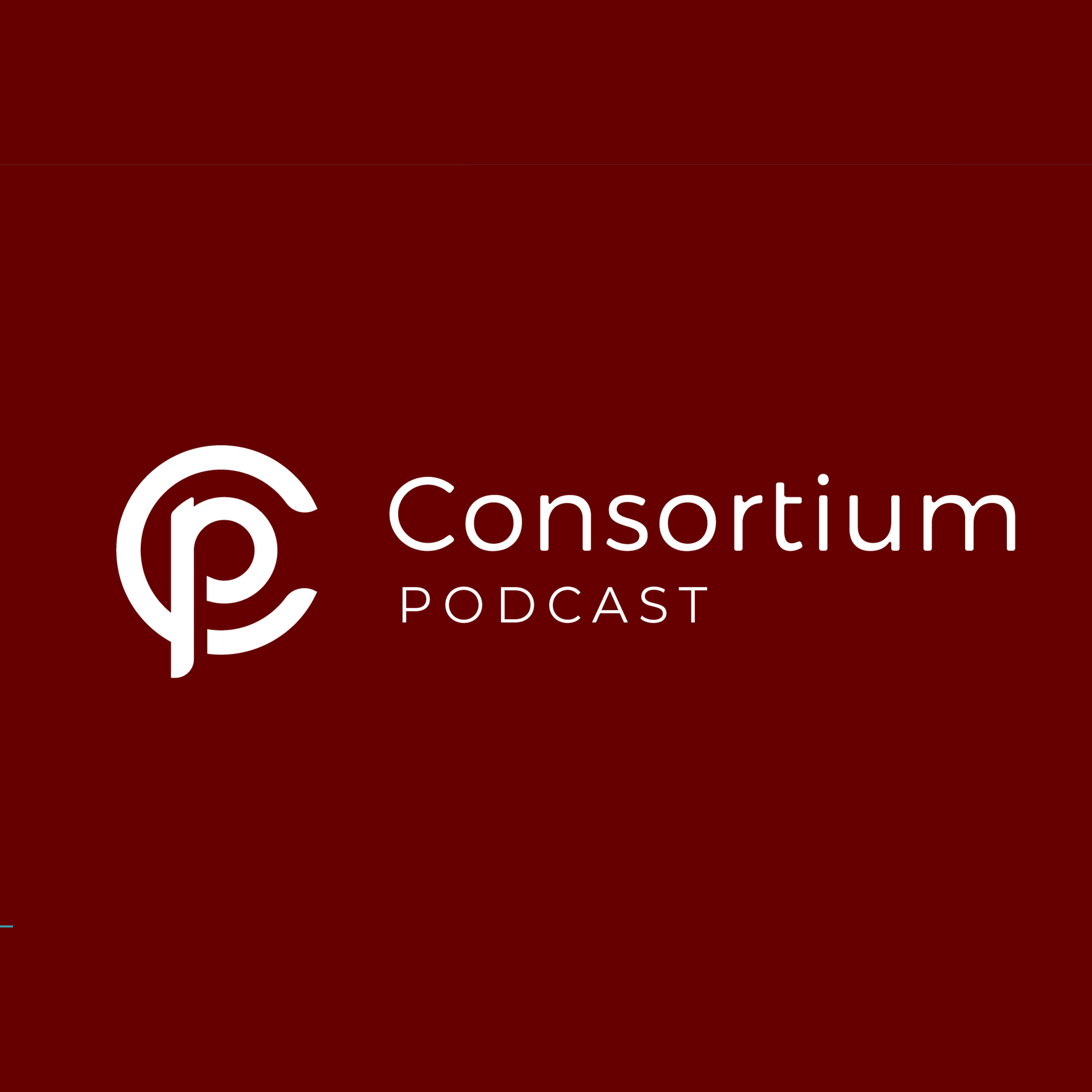Episodes

Thursday Oct 28, 2021
New Podcasts Coming from the Consortium and Kepler Education
Thursday Oct 28, 2021
Thursday Oct 28, 2021
This is Episode 31 of the Consortium Podcast, an academic audio blog of Kepler Education.
In this episode, we announce the new lineup of podcasts for the upcoming year.
The Consortium Podcast is where listeners can listen into engaging academic conversations with teachers, authors, and professors engaged in Classical Christian Education.
The Everlasting Education podcast will continue in same vein as the earlier episodes of the Consortium podcast with Scott Postma and Joffre Swait taking a cue from Chesterton's view of "having a gentle contempt for education" and engaging the day-to-day questions and concerns that affect parents and educators who are engaged in the trenches of Classical Christian Education.
The Eccentric Podcast is the podcast for students and eavesdropping parents of Kepler Education. Taking its name from our student magazine, The Kepler Eccentric, Joffre Swait (Kepler's Academic Advisor) will tackle student issues, feature Kepler students, and bring Kepler student life to the streaming airwaves.
All three podcasts can be found wherever you listen to you podcasts

Monday Sep 13, 2021
How to Have a Successful Academic Year
Monday Sep 13, 2021
Monday Sep 13, 2021
This is Episode 30 of the Consortium Podcast, an academic audio blog of Kepler Education.
Classes at Kepler Education have begun and in this episode, Scott Postma and Joffre Swait discuss some of the important ways students can have a successful academic year. Education is a student's vocation. It's a real calling for a specific time of a young person's life and there is much to be gained by a thankful and thoughtful student. Student listening in will gain some real valuable help and encouragement in this episode.
Learn more about Online Classical Christian Education at https://kepler.education.

Thursday Sep 02, 2021
Interview with Dr. Mitch Stokes on Calculus and Teaching Math Classically
Thursday Sep 02, 2021
Thursday Sep 02, 2021
This is Episode 29 of the Consortium Podcast, an academic audio blog of Kepler Education.
In this episode, Scott Postma and Joffre Swait interview Dr. Mitch Stokes to talk about his new Calculus textbook., Calculus for Everyone, and what it means to teach math classically.
Mitch Stokes (Ph.D., Notre Dame) is a senior fellow of philosophy at New St. Andrews College in Moscow, Idaho. In addition to studying philosophy under world-renowned philosopher Alvin Plantinga, Stokes holds degrees in philosophy, religion, & mechanical engineering. He is the author of Calculus for Everyone, books on apologetics, and biographies of Newton and Galileo.
To learn more about classical education and browse courses, visit us at http://kepler.education.

Thursday Aug 26, 2021
Social Life and Online Education
Thursday Aug 26, 2021
Thursday Aug 26, 2021
This is Episode 28 of the Consortium Podcast, an academic audio blog of Kepler Education.
In this episode, Scott Postma and Joffre Swait discuss the important (and sometimes annoying) question about how homeschool students are going to get any "socialization." Adding an additional dynamic to this question is the fact that many students are now taking online classes--like Kepler Students.
But the question assumes that "socialization" is a good thing and that students who are not in traditional brick and mortar schools are going to miss out on an important aspect of life. In this episode, Scott and Joffre take on that false assumption and discuss productive and enriching ways of cultivating a social life in a homeschooling or online learning environment.
Listen in to learn more and check out http://kepler.education to learn about Student Life and clubs at Kepler Education.

Thursday Aug 19, 2021
Top Twenty Books
Thursday Aug 19, 2021
Thursday Aug 19, 2021
This is Episode 27 of the Consortium Podcast, an academic audio blog of Kepler Education.
In this episode, Scott Postma and Joffre Swait host a top-twenty countdown of Great Books that should make every student's reading list. Books are listed and discussed briefly according to historical time periods. While this list is far and away from being exhaustive, it will give listeners a solid picture of each period of time and set students on track for obtaining a liberal arts education.
Learn more about acquiring a liberal arts education at https://kepler.education.

Wednesday Aug 11, 2021
Logic and Latin: Foundations for Classical Christian Education
Wednesday Aug 11, 2021
Wednesday Aug 11, 2021
This is Episode 26 of the Consortium Podcast, an academic audio blog of Kepler Education.
In this episode, Scott Postma and Joffre Swait discuss the importance of Logic and Latin in Classical Christian Education.
Stratford Caldecott asked the important question, “What kind of education would enable a child to progress in the rational understanding of the world without losing his poetic and artistic appreciation of it?”
The short answer is only a truly liberal arts education can enable a child to gain a rational understanding of the world while still maintaining, and even enhancing, his poetic and artistic appreciation of it.
Two of the foundational aspects of this kind of education are Logic, the clear-sighted arguments which separate the true from the false, and Latin, the language of antiquity and Christendom by which a student learning the language is able enter into the texts which shaped the western world while also cultivating his poetic and artistic appreciation of the world.
Learn more about the Logic and Latin of liberal education by visiting https://Kepler.education.

Thursday Aug 05, 2021
Teaching Science in Classical Christian Education with Will Boyd
Thursday Aug 05, 2021
Thursday Aug 05, 2021
This is Episode 25 of the Consortium Podcast, an academic audio blog of Kepler Education.
In this episode we interview Will Boyd, scientist, teacher, and homeschool dad, and talk about the fundamentals of science and its marriage to the humanities in a liberal arts education. Will blogs at the Reformed Environmentalist and you can learn more about the science homeschooling resources he mentions in the podcast below:

Thursday Jul 29, 2021
The Surprising Benefits of Online Education
Thursday Jul 29, 2021
Thursday Jul 29, 2021
This is Episode 24 of the Consortium Podcast, an academic audio blog of Kepler Education.
At Kepler, online education is not just the Zoomification of the classroom. It's so much more than that!
In this episode Scott and Joffre discuss the various ways in which families are talking about the surprising benefits of online education. As they share quotes from conversations with Kepler families, they dive into the dynamics of what parents are celebrating.
They discuss the various ways in which, as well as the reasons why, the home and family lives of Kepler students are being impacted, why parents are more than just satisfied with their children's academic achievements (they are delighted by them), and how wonder and curiosity are being fostered in an online classroom, all while Kepler teachers maintain their commitment to liberalis, and scholé learning.

Thursday Jul 15, 2021
Understanding and Critiquing Critical Theory in Education and Culture
Thursday Jul 15, 2021
Thursday Jul 15, 2021
This is Episode 23 of the Consortium Podcast, an academic audio blog of Kepler Education.
The widespread notions of cultural appropriation, political correctness, outrage culture, identity politics, and cancel culture did not arrive on the scene in the late 2010s in a vacuum. What is today colloquially known as “woke mentality” stems from a postmodern-academic-ideology-turned-activism known as Critical Theory and its being aggressively propagated in schools and other cultural outlets.
In this episode, Scott and Joffre discuss the origins and consequences of Critical theory in its various manifestations and suggest the most practical thing we can do to fight back is to stand up to it with the gospel of Jesus Christ and Christ-centered education.
Critical theory has gone beyond activism and social media movements and instigated the widespread notion of cultural appropriation, political correctness, outrage culture, identity politics, and cancel culture. And under the umbrella of Social Justice Theory, it has become insidious in the culture at large manifesting itself in the various theories and movements like Disability and Fat Studies, Queer Theory, Postcolonial Theory, Critical Racial Theory, and Gender Studies.
Not only is this "other gospel" being propagated in hollywood and behemoth corporations, but churches are adopting forms of it and legislators across the nation are attempting to have critical theories incorporated into the curriculum as the accepted worldview.
To learn more about Classical Christian Education, visit https://kepler.education
*Definitions and descriptions for this episode are taken from Cynical Theories: How Activist Scholarship Made Everything about Race, Gender, and Identity - and Why This Harms Everybody by Helen Pluckrose and James Lindsay.

Friday Jul 09, 2021
The Four Levels of Reading
Friday Jul 09, 2021
Friday Jul 09, 2021
This is Episode 22 of the Consortium Podcast, an academic audio blog of Kepler Education.
Reading is fundamental to an education. It is the intellectual backbone of every literate person. If one cannot read, one cannot be educated, as least in the liberal arts sense of being educated. But reading is difficult for some people and reading challenging, dense texts doesn't make the task any easier.
In this episode, Scott and Joffre discuss and break down the Four Levels of Reading as taught by Mortimer J. Adler in his acclaimed work, How to Read a Book. Learning to implement these four levels of reading will help us reach above our heads, intellectually, and grasp the meaning of difficult ideas, thus strengthening our intellect and broadening our understanding. In other words, mastering the four levels of intellectual reading will help us become autodidactic.
To learn more about Classical Christian Education, visit https://kepler.education

